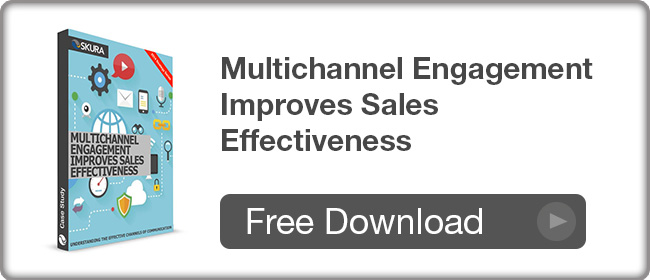Our world has been forever changed by digital technology. It’s a part of everything we do, from smartphones to having access to the Internet everywhere we go.
For healthcare this change means many different things. The prevalence of digital technology in the healthcare environment will impact the future of medical devices, the CareFlow, big data, patient expectations, the role of the pharma sales reps (PSR), and interactions with healthcare providers (HCPs).
In order to succeed in the changing digital world, pharma companies must become strategic problem-solvers. There are big challenges to overcome, from expectations regarding pharma sales and marketing content to the rise of social media; the healthcare industry should be spearheading the digital transformation.

Today’s article includes,
- Building an effective digital strategy;
- Getting the most out of your digital interactions;
- The biggest challenges for digital pharma sales, and;
- How a digital sales enablement solution can help
Building an effective digital strategy
Digital technology is a disruptive force for business, as much as it is an aid. A flexible approach to digital strategy & planning is a crucial pillar to success.
You can work as hard as possible to build an airtight strategy for the next five years, but if the digital world has taught us anything it’s that change is just around the corner. Leaving room to evolve and adapt your digital strategy is vital.
Pharma must create digital strategies, not simply add digital aspects into their existing strategies. Technology in and of itself is not a strategy, but rather a facilitator or tool that can be used to achieve an objective. Unfortunately this is not an easy task, but as we explained above, the benefits of a digital transformation in pharma will soon pay off (Source: Eye for Pharma, 2016).
“For example, 76% of pharma respondents are conducting market research on emerging healthcare decision makers to develop their commercial strategies.” (Source: Pharm Exec, 2016).
The graph below reveals who is most responsible for preparing a company strategy in response to market change – this is a problem.
Why? Organizational change is a collaborative approach that demands coordinated teamwork with a unified view of market needs and a willingness to be responsive and adaptive to the pharma market.

(Image Source: Pharm Exec, 2016)
Getting the most out of your digital interactions
All modern relationships have a digital component, and this is especially true for the future of pharma.
- HCPs spend an average of 8 hours per week online
- 73% of physicians agree that they rely on online content for clinical information more so than they did two years ago
- 1 in 20 Google searches are for health-related information
(Source: Klick, 2015).
HCPs and patients now have access to information previously controlled and distributed solely by PSRs. Because of this, pharma companies must now ensure that their content is available digitally. This will increase accessibility, and help the industry communicate new information faster, while adding value and effectively becoming a part of the online healthcare conversation.
- 23% of HCPs and medical professionals reported interacting digitally with a PSR at least once a month
- An additional 33% said they would like to use digital channels more often
- 70% reported that they wished they had better tools to help them communicate with fellow physicians in real time
(Source: Pharma 3D, 2016).
The right pharma digital marketing content adds value for HCPs by inspiring, educating, and entertaining them.
 (Source: Pharm Exec, 2016)
(Source: Pharm Exec, 2016)
Ultimately, best-in-class pharma companies will implement commercial models that allow them to deliver value stories that are tailored to the needs of their customers (Source: Marc Princen, 2016).
PSRs are now encouraged to become CSRs, customer service representatives, as they are the virtual face of the brand. PSRs should make themselves available on multiple digital channels, providing access to samples, educational resources, and patient education. Supporting the on-demand needs of busy HCPs.
At SKURA we call this this role ‘The Trusted Concierge’ and that’s exactly what HCPs need most from their PSRs.
These digital interactions thrive when PSRs can schedule and deliver high-value details with knowledgeable and skilled reps via digital channels such as co-browsing, and virtual meetings. In particular, HCPs are requesting PSRs that are capable of delivering scientific information and evidence-based solutions. Focusing on the issues and questions that matter the most to the HCP in question.
When pharma companies can deliver digital interactions through coordinated channels, including HCP-brand microsites, personalized email campaigns, product support, adherence and retention, etc. as well as aligning their sales and marketing departments - they will succeed (Source: Pharm Exec, 2016).

The biggest challenges for digital pharma sales
1. Sales and Marketing Alignment
When departments exist in silos, important information gets lost. By creating cross-functional teams with key drivers, pharma can improve the internal communication process and develop better strategies.
Sales and marketing alignment is essential for pharma companies to prosper in the digital world. Reaching the large (and growing) percentage of ‘unreachable’ physicians will demand that the roles of both departments be melded together (Source: Pharm Exec, 2016).
For more information on achieving sales and marketing alignment download a free copy of chapter 3 from our eBook.
2. When to Change
Deciding when to make a change is a big decision for pharma companies because many view it as a double-edge sword, on the one side – change comes with the risk of costly mistakes, but consequently - waiting too long can damage reputations and make you seem out of touch.
It’s important to not jump on every new trend, as this can lead to wasted resources, time, and effort. Work with the key players in your organization to determine which trends and ideas are worth chasing – as noted in the graph effective change management comes from collaborative work, not top-down command and control.
After all; Snap Chat probably isn’t the answer to your communication problems (Source: Pharm Exec, 2016).
Ideally, companies will try to be proactive in their decision making, determining which changes are worthwhile, taking the necessary time to prepare and develop their objectives and strategies before implementing any large-scale changes.
3. Digital Noise
In a 2015 survey by Affinity Monitor, data showed that pharma companies sent nearly 50% more digital messages, such as emails and mobile alerts, than personal face-to-face calls (Source: ZS Associates, 2015).

(Stat Source: ZS Associates, 2015)
The majority of these communications are blanket messages, designed to appeal to everyone but ultimately appealing to no one.
The challenge is for pharma to focus on the quality of their targeted content and customer interactions, rather than creating for volume. Selectively deploying content with a goal and prospect in mind is more likely to achieve a favourable result (Source: Copyblogger, 2015).
This is why it is important for pharma to invest in sales technologies such as third party applications for content management, analytics, and CRM integration – something known as the sales stack.
How a digital pharma sales enablement solution can help
By investing in digital sales technologies pharma companies can empower their PSRs with the information and tools that they need to succeed.
A digital pharma sales enablement platform allows PSRs to understand and predict customer concerns based on actionable data analytics and insights. This also allows marketing to develop buyer personas.
Once they have created these detailed personas they can begin to create and design digital content that is tailored to these individuals and their needs at every stage of the CareFlow. They can determine which channel they prefer, how frequently they want to be contacted, etc. Therefore, increasing the value of their digital sales content and PSR interactions.
This customer-first approach, when executed correctly, will lead to sales success and improved patient care!
If you’re interested in learning more about the tangible benefits of a pharma sales enablement solution download the case study below.
In conclusion
Pharma companies are typically reluctant to abandon their traditional approaches and techniques, but this resistance to change and stubborn attitude will only hinder development. The industry must adapt to the digital changes in their environment so that they can continue to deliver value stories and avoid losing relevance.
A digital transformation offers many benefits from improved customer experience & communications, to enhanced productivity & data collection, and even cost reductions with the potential for increased revenues!
Request a demo below and let our sales specialists show you just how easy the digital transformation can be.














